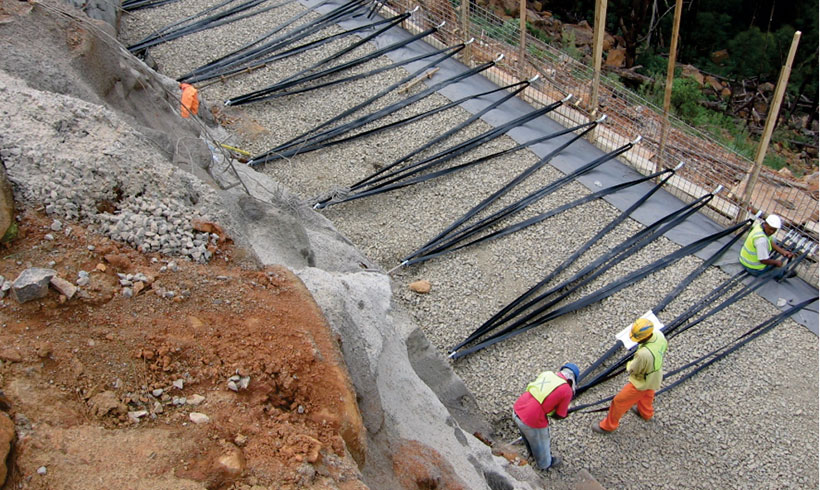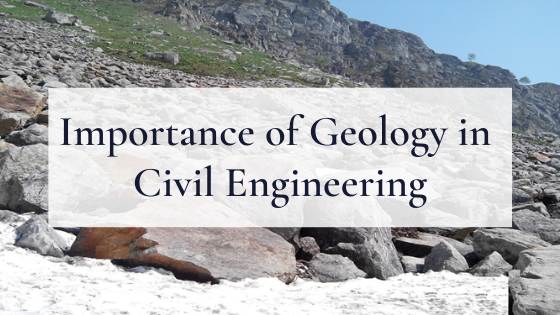Rumored Buzz on Specialized Geotechnical Engineering Solutions
Little Known Questions About Specialized Geotechnical Engineering Solutions.
Table of ContentsRumored Buzz on Specialized Geotechnical Engineering SolutionsTop Guidelines Of Specialized Geotechnical Engineering SolutionsHow Specialized Geotechnical Engineering Solutions can Save You Time, Stress, and Money.Not known Factual Statements About Specialized Geotechnical Engineering Solutions
They conduct site examinations, accumulate samples, carry out lab examinations, and assess information to review the viability of the ground for building and construction tasks. Based upon their searchings for, geotechnical designers supply referrals for structure style, slope stability, keeping structures, and mitigation of geotechnical hazards. They collaborate with various other specialists, such as engineers, architectural designers, and building and construction groups, to make sure that geotechnical considerations are integrated right into the total job style and implementation.
Foundation Style: Geotechnical designers play a crucial role in designing foundations that can securely sustain the designated structure. They assess the dirt problems and tons demands to determine the appropriate structure kind, such as shallow foundations (e.g., grounds), deep structures (e.g., heaps), or specialized strategies like dirt renovation. They think about elements such as settlement restrictions, birthing capacity, and soil-structure communication to create ideal foundation layouts.
The 15-Second Trick For Specialized Geotechnical Engineering Solutions
Below are some kinds of geotechnical designers: Structure Engineer: Structure engineers focus on making and evaluating foundations for structures - Specialized Geotechnical Engineering Solutions. They analyze the soil problems, lots requirements, and website characteristics to figure out one of the most suitable structure type and style, such as superficial structures, deep foundations, or specialized strategies like pile foundations
They do area testing, gather examples, and analyze the gathered information to define the dirt properties, geologic formations, and groundwater problems at a site. Geotechnical Instrumentation Engineer: Geotechnical instrumentation engineers concentrate on monitoring and determining the actions of soil, rock, and structures. They mount and preserve instrumentation systems that check factors such as dirt negotiation, groundwater degrees, slope motions, and architectural variations to analyze efficiency and provide early warnings of potential issues.
In the office environment, geotechnical engineers utilize specialized software application devices to do computations, produce layouts, and analyze data. Specialized Geotechnical Engineering Solutions. They prepare reports, review project specifications, communicate with customers and staff member, and coordinate task tasks. The office setting offers a conducive environment for study, evaluation, and cooperation with various other experts included in the project
They frequently see task websites to carry out site examinations, analyze geotechnical problems, and gather data for evaluation. These gos to involve taking a trip to various locations, sometimes in remote or tough surfaces. Geotechnical engineers may execute soil sampling, conduct examinations, and screen building activities to make certain that the geotechnical facets of the project are being implemented appropriately.
Examine This Report about Specialized Geotechnical Engineering Solutions
Geotechnical engineers likewise function in specialized geotechnical research laboratories. Geotechnical laboratory engineers work extensively in these atmospheres, taking care of screening equipment, operating tools, and videotaping information.
Retaining Walls: Creating walls that hold back soil to avoid landslides and supply security on sloped surfaces. Embankments and Earthworks: Creating embankments for roadways, trains, and dams to guarantee they stay steady under anxiety. The mining sector counts visit here greatly on geotechnical design to make sure the safety and security and long life of its procedures.
With this in mind, we have actually created our program to prepare trainees for success. The Geotechnical Design program at the University of Delaware provides chances for advanced study and research in: Dirt and rock technicians Soil-structure communication Integral modeling Computational geomechanics Foundation and earth frameworks design Ground enhancement Slope stability and landslide stablizing Liquefaction of dirts and quake design Laboratory characterization of geomaterials and dirt Check This Out support Ecological geotechnics Given the strong demand for enhancement to our nation's infrastructurethe American Society of Civil Engineers provided the united state
Geotechnical design is a branch of civil engineering; however, it includes using clinical approaches and concepts to collect and interpret the physical buildings of the ground. Geotechnical designers are included in all phases of the design of frameworks, from idea to building and construction. Their job is essential in the design and preparation process as they assess the integrity of dirt, clay, silt, sand, and rock, prior to building commencing.
Some Known Factual Statements About Specialized Geotechnical Engineering Solutions
This is followed by a ground investigation based upon the findings of the desk research study and involves trial pitting and sampling to discover any type of possible issues. Geotechnical engineers work within multidisciplinary check my site groups, sustained by intermediate and jr engineers along with by CAD technicians. As a senior geotechnical designer on a hydro plant task, jobs might include taking part in technical testimonials (e.g., peer testimonials), tailings clog examinations, dam safety reviews, and various other research studies associated to the style and building of mine waste centers.
While some specialists specialise solely in geotechnics, others might function under titles like engineering rock hound or ground designer within similar capabilities. As a geotechnical engineer, you'll need to: construct and maintain partnerships with customers and various other experts associated with the website, throughout each projectmaintain safety and security criteria on site bear in mind expense ramifications when you make recommendationsstudy geological maps and airborne photographs from a series of sources and from various time periodsexamine building plans to see exactly how viable they are based on your understanding of the siteinvestigate dangers or geological risks for the sitesearch for eco sensitive functions, such as land fill start to create accurate and interpretive ground modelsplan area investigationsdrill and analyse examples of bedrock, soil, groundwater and extra products supervise other professionals on sitesolve technical problems as they develop, such as unanticipated structures at drill sitesmonitor conditions throughout and after building and construction to ensure frameworks are secure in the short and long termadd data gathered on site to your preliminary researchcreate geotechnical computations, drawings, and 2 or three-dimensional computer designs translating the datamake recommendations concerning the recommended use the website.
There are whole lots of possibilities to fulfill new people, as you'll deal with a series of professionals at every site. The job can be demanding as you might be liable for the safety of others while on website. There is also a high degree of monetary obligation, as the referrals you make can have serious price implications.
